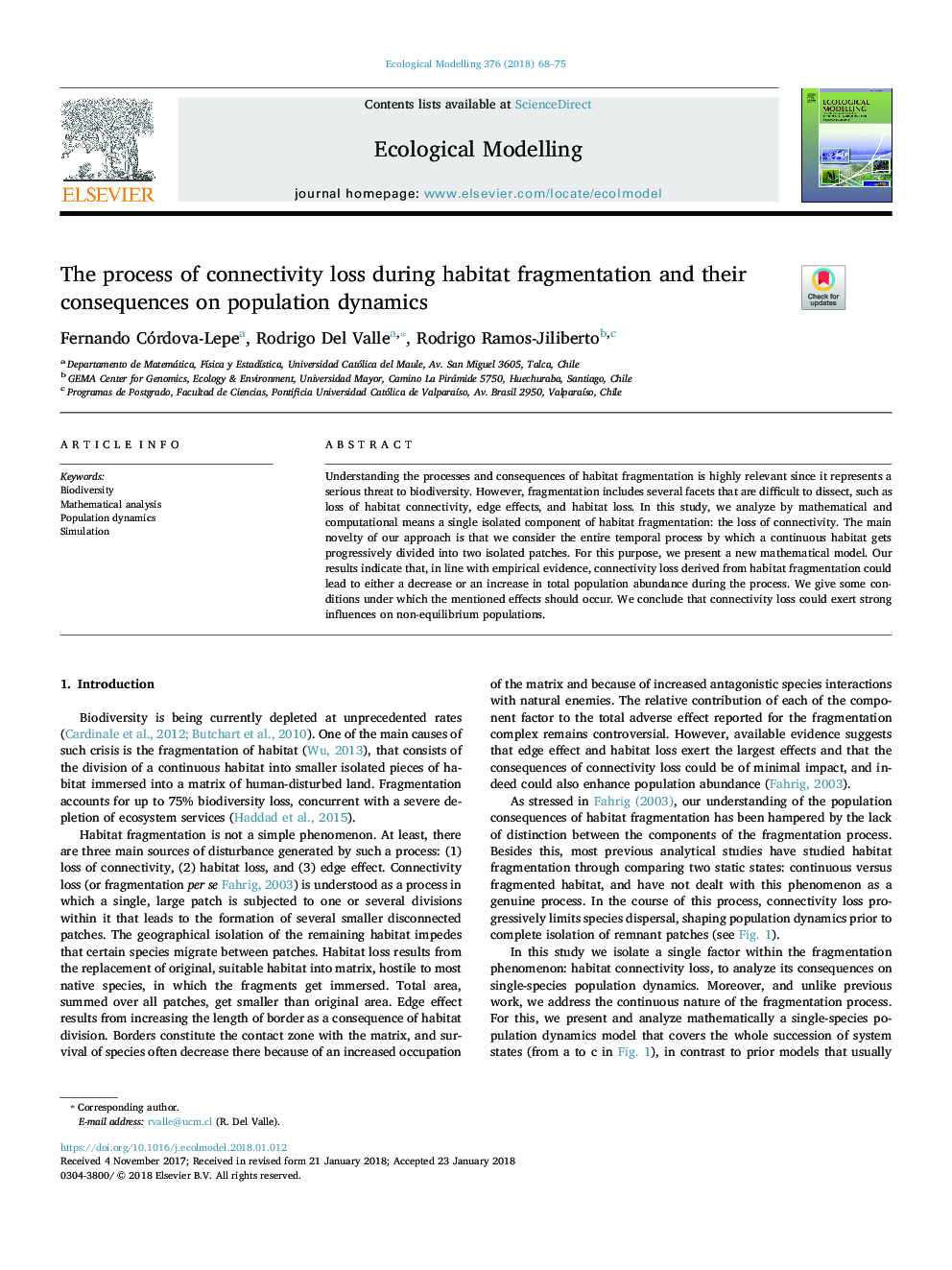| Article ID | Journal | Published Year | Pages | File Type |
|---|---|---|---|---|
| 8846066 | Ecological Modelling | 2018 | 8 Pages |
Abstract
Understanding the processes and consequences of habitat fragmentation is highly relevant since it represents a serious threat to biodiversity. However, fragmentation includes several facets that are difficult to dissect, such as loss of habitat connectivity, edge effects, and habitat loss. In this study, we analyze by mathematical and computational means a single isolated component of habitat fragmentation: the loss of connectivity. The main novelty of our approach is that we consider the entire temporal process by which a continuous habitat gets progressively divided into two isolated patches. For this purpose, we present a new mathematical model. Our results indicate that, in line with empirical evidence, connectivity loss derived from habitat fragmentation could lead to either a decrease or an increase in total population abundance during the process. We give some conditions under which the mentioned effects should occur. We conclude that connectivity loss could exert strong influences on non-equilibrium populations.
Related Topics
Life Sciences
Agricultural and Biological Sciences
Ecology, Evolution, Behavior and Systematics
Authors
Fernando Córdova-Lepe, Rodrigo Del Valle, Rodrigo Ramos-Jiliberto,
